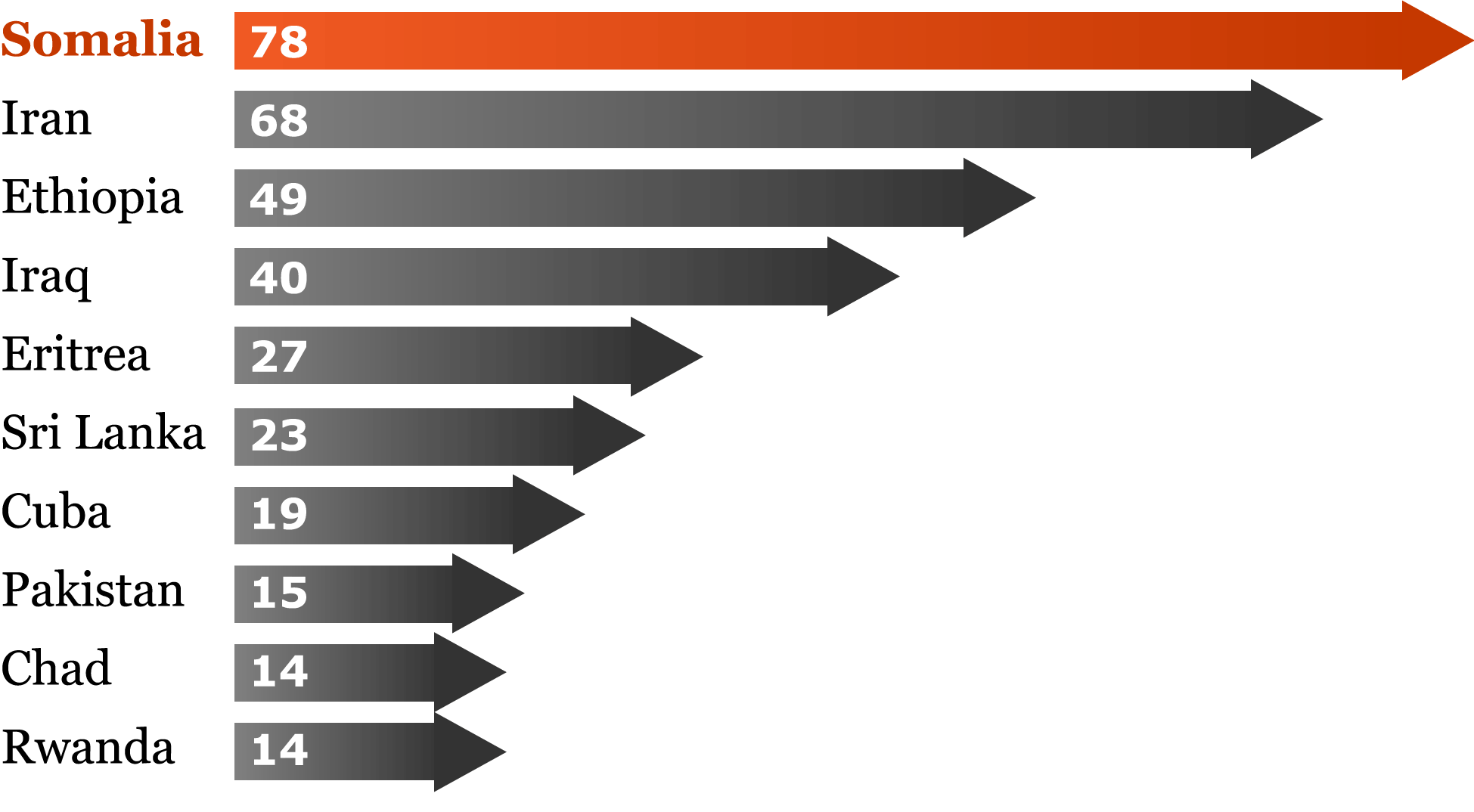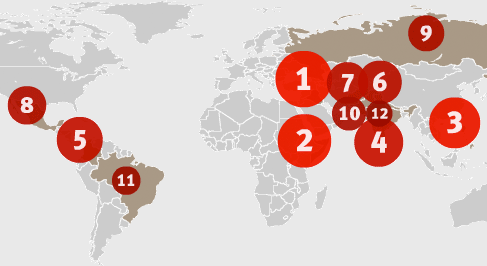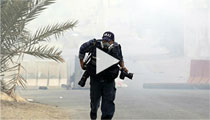Despite a relatively peaceful presidential election and the government’s continuing control of the capital, Mogadishu, a record number of Somali journalists were killed in 2012. Amid comparative calm in the capital, targeted killings of journalists and political figures continued, most notably in a deadly September blast at a café frequented by reporters and government officials. Given the ouster of Al-Shabaab insurgents from Mogadishu in 2011, the continuing killings raised concern that journalists and others were being targeted by a widening field of politically motivated antagonists. Though most fatalities occurred in the capital, unknown gunmen killed two journalists in separate attacks in Galkayo, a commercial hub of the semi-autonomous region of Puntland. Three radio stations were forced to close during the year, two on the orders of Al-Shabaab and one at the directive of Puntland officials. Pervasive insecurity has forced dozens of Somali journalists to flee into exile in the last five years, the highest number in the world. Although peaceful in comparison to the rest of the country, the semi-autonomous republic of Somaliland had a high number of journalist detentions.
Somalia
» Record number of journalists killed, despite relative calm in capital.
» Unprecedented detentions in Somaliland; violence, censorship in Puntland.
Despite a relatively peaceful presidential election and the government’s continuing control of the capital, Mogadishu, a record number of Somali journalists were killed in 2012. Amid comparative calm in the capital, targeted killings of journalists and political figures continued, most notably in a deadly September blast at a café frequented by reporters and government officials. Given the ouster of Al-Shabaab insurgents from Mogadishu in 2011, the continuing killings raised concern that journalists and others were being targeted by a widening field of politically motivated antagonists. Though most fatalities occurred in the capital, unknown gunmen killed two journalists in separate attacks in Galkayo, a commercial hub of the semi-autonomous region of Puntland. Three radio stations were forced to close during the year, two on the orders of Al-Shabaab and one at the directive of Puntland officials. Pervasive insecurity has forced dozens of Somali journalists to flee into exile in the last five years, the highest number in the world. Although peaceful in comparison to the rest of the country, the semi-autonomous republic of Somaliland had a high number of journalist detentions.
More journalists fled Somalia between 2007 and 2012 than any other country in the world, CPJ research shows.

| 1. Somalia: 78 2. Iran: 68 3. Ethiopia: 49 4. Iraq: 40 | 5. Eritrea: 27 6. Sri Lanka: 23 7. Cuba: 19 | 8. Pakistan: 15 9. Chad: 14 10. Rwanda: 14 |
In the deadliest year in Somalia ever recorded by CPJ, 12 journalists were killed in direct relation to their work. Most were killed in the capital, Mogadishu.
With 11 unsolved journalist murders over the past decade, Somalia is the second worst nation in the world in combating deadly anti-press violence, according to CPJ’s Impunity Index. The index calculates unsolved journalist murders as a percentage of each country’s population.

| 1. Iraq 2. Somalia 3. Philippines 4. Sri Lanka | 5. Colombia 6. Nepal 7. Afghanistan 8. Mexico | 9. Russia 10. Pakistan 11. Brazil 12. India |
The authorities detained 22 Horn Cable TV journalists in January after President Ahmed Mahmoud Silyano accused the broadcaster of spreading propaganda against his administration. The journalists were later freed, but the roundup marked a record year of short-term detentions in the semi-autonomous republic. Data are through September 2012.
January: | 32 |
February: | 5 |
March: | 2 |
April: | 7 |
May: | 7 |
June: | 0 |
July: | 0 |
August: | 1 |
September: | 2 |

